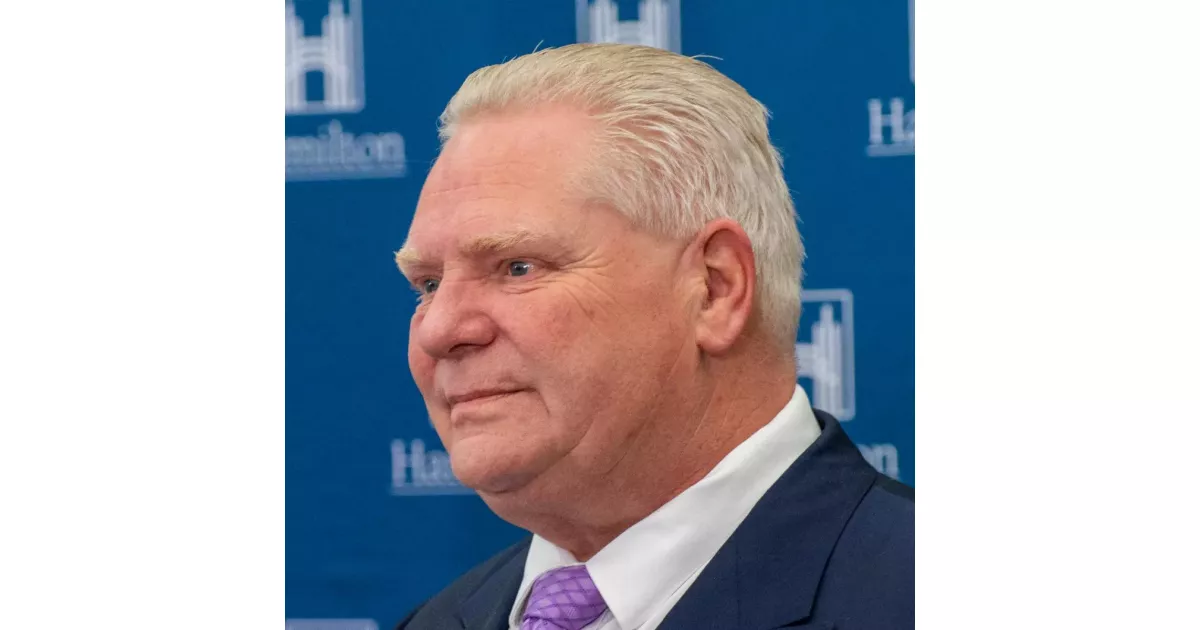How Doug Ford built a successful career. Explore key moments that defined the journey.
Doug Ford is a Canadian politician and businessman currently serving as the 26th Premier of Ontario since 2018. He is also the leader of the Progressive Conservative Party. Ford represents the Toronto riding of Etobicoke North in the Legislative Assembly of Ontario.
2014: Donation to Humber River Hospital
In 2014, Doug Ford and his mother donated $90,000 to Humber River Hospital, where Rob Ford was receiving care.
2014: Doug Ford Runs for Mayor of Toronto
In 2014, Doug Ford took over his brother's mayoral campaign and ran against Olivia Chow and John Tory, who ultimately won.
2016: Publication of "Ford Nation: Two Brothers, One Vision"
In 2016, the book "Ford Nation: Two Brothers, One Vision – The True Story of the People's Mayor" by Doug and Rob Ford was published.
April 2018: Ford announces plan to lower electricity rates
In April 2018, during his election campaign, Doug Ford announced plans to reduce Ontario's electricity rates by 12 percent. His strategy involved redirecting the province's dividends from its partial ownership of Hydro One to subsidize electricity rates and absorbing the cost of conservation programs, estimated at $800 million annually.
June 15, 2018: Ford Announces Elimination of Cap and Trade Program
On June 15, 2018, Premier-designate Doug Ford announced the newly formed cabinet's plan to eliminate the province's cap and trade program under the 2016 Climate Change Mitigation and Low-Carbon Economy Act.
July 11, 2018: Ford Announces Reversion to 1998 Health Curriculum
On July 11, 2018, Doug Ford announced that Ontario's health curriculum, including sexual education components updated in 2015, would revert to the 1998 curriculum before the next school year, with plans to create a new curriculum after consultations.
2018: PCs gain 7 more seats than they had won
Ford led the Progressive Conservatives to another majority government in the 2022 provincial election. The PCs gained seven more seats than they had won in 2018, with an increased share of the vote.
2018: Endorsed Republican economic policies
In 2018, Doug Ford endorsed the economic policies of the Republican Party and the presidency of Donald Trump in the United States, stating his support for Trump was "unwavering".
2018: Ford Promised a Balanced Budget
In 2018, Doug Ford promised a balanced budget for Ontario.
2018: Ford Supports Fully Subsidized Dental Costs for Low-Income Seniors
In 2018, Doug Ford stated his belief that the provincial government should fully subsidize dental costs for low-income seniors.
2018: Ford Ends York University Strike with Back-to-Work Legislation
In 2018, Doug Ford used back-to-work legislation to end the strike at York University, which had become the longest post-secondary strike in Canadian history.
2018: Ford Expresses Support for Publicly Funded Healthcare
In 2018, Doug Ford voiced his support for publicly funded healthcare and advocated for increased funding to establish 30,000 additional long-term care beds.
2018: Ford Criticizes Trudeau Government's Carbon Tax
In 2018, Ford was a staunch critic of the federal government of Liberal Prime Minister Justin Trudeau, opposing the Trudeau government's imposed carbon tax.
2018: Ford Proposes Teaching Job Cuts and Cancels Education Programs
In 2018, immediately after taking office, Doug Ford proposed to cut 3,475 Ontario teaching jobs, cancelled the Green Ontario Fund residential rebate program (including a $100 million fund for public school repair), eliminated an initiative to add indigenous peoples content to the school curriculum, and eliminated free tuition for low-income students.
June 2019: Ford Government Removes Funding for School Programs and Increases Class Sizes
By June 2019, the Ford government had removed or decreased funding for various school programs and increased class sizes.
2019: Ford Urges Voters to Vote Out Trudeau-Led Liberals
In 2019, Ford urged voters to vote out the Trudeau-led Liberals in the federal election, continuing his opposition to their policies.
2019: Ontario Health Agency Introduced
In 2019, the Ford government introduced the Ontario Health agency, aiming to centralize services.
February 2020: Ontario to Assume Control Over Toronto Subway
In February 2020, Doug Ford and Toronto Mayor John Tory signed a preliminary agreement for the province to assume sole responsibility for the planning, design, and construction of several subway extensions.
August 2020: Criticized Trump's aluminum tariffs
In August 2020, Doug Ford criticized Donald Trump's policy regarding tariffs on Canadian aluminum imports, deeming it "totally unacceptable".
2020: Shift to Political Centre
Since 2020, political commentators have noted a shift in Ford's rhetoric and policies to the political centre, along with a more cooperative attitude toward the federal Liberal government.
2021: Ford Did Not Campaign for O'Toole During Federal Election Campaign
In 2021, Doug Ford did not actively campaign for federal Conservative leader Erin O'Toole during the federal election campaign, signaling a distance between them.
April 2022: Fixing Long-Term Care Act Comes Into Force
In April 2022, the Fixing Long-Term Care Act came into force, aimed at helping long-term care homes better prepare for future pandemics.
April 2022: PC Government Releases Budget Before Election
In late April 2022, days before the election call, the PC government released its budget, promising to implement it if reelected. The budget recorded a deficit of $19.9 billion and promised spending on infrastructure and tax breaks.
May 3, 2022: Ford Advises Dissolution of Legislature and Calls for Election
On May 3, 2022, Premier Doug Ford met with the Lieutenant Governor of Ontario to advise dissolution of the legislature and for writs of election be drawn up.
September 2022: Ford government passes Strong Mayors, Building Homes Act
In September 2022, Ford's government passed the Strong Mayors, Building Homes Act, granting additional powers to the mayors of Toronto and Ottawa, including direct control over budgets, appointments, and vetoes over laws conflicting with provincial priorities.
October 2022: Ford Supports Trudeau Government's Invocation of Emergencies Act
In October 2022, Ford publicly supported the Trudeau government's invocation of the Emergencies Act in response to the Canada convoy protest.
November 3, 2022: Ontario Passes Bill 28, the Keeping Students in Class Act
On November 3, 2022, the Legislative Assembly of Ontario passed Bill 28, known as the Keeping Students in Class Act, which imposed a contract on CUPE and made it illegal to strike, invoking the notwithstanding clause.
November 7, 2022: Ford Announces Rescission of Bill 28 and Resumes Negotiations with CUPE
On November 7, 2022, Doug Ford announced that he would rescind Bill 28 and resume negotiations with CUPE following a province-wide strike.
2022: Ford Re-elected with a Third Consecutive Majority Government
The Progressive Conservatives led by Ford were reelected with a third consecutive majority government in 2022, though with a slightly smaller majority compared to 2022. This is the first premier to do so since 1959.
May 2023: Ford Government Passes Bill 60, the Your Health Act
In May 2023, Doug Ford's government passed Bill 60, also known as the Your Health Act, allowing private clinics to perform more surgeries and procedures covered by OHIP to reduce surgical backlogs.
May 2024: Speculation Begins on Early Ontario Provincial Election
In May 2024, speculation arose that Ford would call an early election, fueled by his refusal to commit to the June 2026 date. It is speculated that this was to take advantage of a lead in the polls and fundraising, as well as a desire to hold the election before the next federal election.
June 2024: Subway Projects Begin Procurement or Construction
By June 2024, all of the subway projects mentioned in the February 2020 agreement, had begun procurement or construction.
September 2024: Ford Government Explores Tunnel Under Highway 401
In September 2024, Premier Ford announced that his government would explore a tunnel for drivers and public transit under Highway 401, initiating a feasibility study for what he claimed would "be one of the world's longest tunnels".
2024: Congratulated Trump, bet big on relations
After the 2024 United States presidential election, Doug Ford congratulated Donald Trump and stated that it was "time to bet big" on Ontario–US relations.
2025: Ford Meets with Pierre Poilievre, Refuses to Advise MPPs to Campaign for Him
In 2025, Doug Ford had a brief meeting with Conservative Leader Pierre Poilievre and, while voting for him, will not be advising his MPPs to campaign for him.
June 4, 2026: Fixed Election Laws to be held by June 4
The 44th Ontario general election was originally scheduled by fixed election laws to be held by June 4, 2026
June 2026: Original Scheduled Date for Ontario General Election
The 44th Ontario general election was originally scheduled by fixed election laws to be held by June 4, 2026.
Mentioned in this timeline

Donald John Trump is an American politician media personality and...
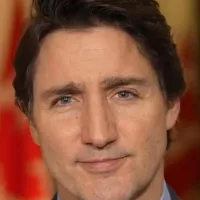
Justin Trudeau served as the rd Prime Minister of Canada...
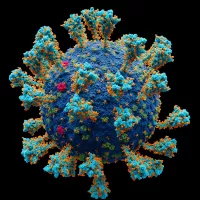
Coronaviruses are a family of RNA viruses affecting mammals and...
China officially the People's Republic of China is an East...

Inflation in economics signifies an increase in the average price...
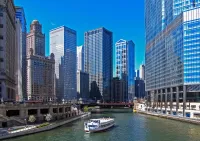
Chicago is the most populous city in Illinois and the...
Trending

41 minutes ago Isaiah Joe to start for Thunder; Williams comes off bench, joins first unit.
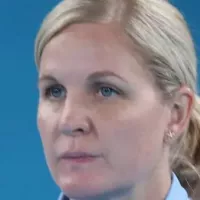
41 minutes ago Kirsty Coventry navigates political challenges as IOC leader, eyes Los Angeles Olympics.
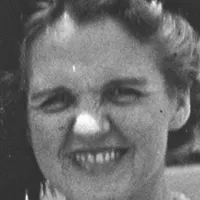
41 minutes ago Iowa Hawkeyes Prepare for Michigan, Celebrate Seniors; Freshman Shines Against Purdue.
2 days ago Cavs' Health Improves: Wade's Return Boosts Playoff Hopes; Mobley's Status Questionable
42 minutes ago Arsenal faces Tottenham; Arteta dismisses 'choke' label; Gyökeres key player.

2 hours ago Eileen Gu Dominates Halfpipe, Secures Gold and Sixth Olympic Medal in Career.
Popular

Jesse Jackson is an American civil rights activist politician and...

Barack Obama the th U S President - was the...

Bernie Sanders is a prominent American politician currently serving as...

Ken Paxton is an American politician and lawyer serving as...

Michael Joseph Jackson the King of Pop was a highly...
WWE Raw a professional wrestling television program by WWE airs...
